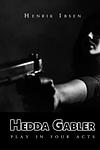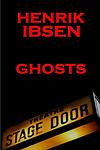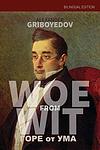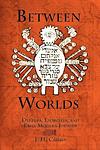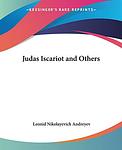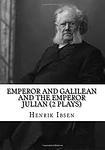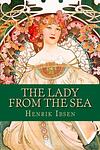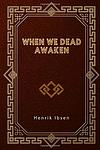The Greatest Norwegian, Russian "Plays" Books of All Time
Click to learn how this list is calculated.
This list represents a comprehensive and trusted collection of the greatest books. Developed through a specialized algorithm, it brings together 305 'best of' book lists to form a definitive guide to the world's most acclaimed books. For those interested in how these books are chosen, additional details can be found on the rankings page.
Genres
Plays are a category of literature that consists of written works intended for performance on stage. They typically feature dialogue between characters and are structured into acts and scenes. Plays can be comedic, tragic, or a combination of both, and often explore themes such as love, power, and morality. They are meant to be performed by actors in front of an audience, and can be enjoyed both as written works and as live performances.
Countries
Date Range
Reading Statistics
Click the button below to see how many of these books you've read!
Download
If you're interested in downloading this list as a CSV file for use in a spreadsheet application, you can easily do so by clicking the button below. Please note that to ensure a manageable file size and faster download, the CSV will include details for only the first 500 books.
Download-
1. A Doll's House by Henrik Ibsen
This classic play focuses on the life of Nora Helmer, a woman living in a seemingly perfect marriage with her husband, Torvald. However, as the story unfolds, it becomes clear that Nora has been hiding a significant secret related to their finances. The revelation of this secret, and the subsequent fallout, challenges societal norms and expectations of the time, particularly in regards to gender roles and the institution of marriage. Nora's eventual decision to leave her husband and children in pursuit of her own independence serves as a powerful commentary on individual freedom and self-discovery.
The 324th Greatest Book of All Time -
2. The Cherry Orchard by Anton Chekhov
"The Cherry Orchard" is a classic play about an aristocratic Russian woman and her family as they return to their family estate, which includes a large and well-known cherry orchard. The family is on the brink of financial ruin and the estate is slated to be auctioned off. Despite various attempts to save their beloved home and orchard, they are ultimately unable to prevent the sale. The play is a poignant reflection on the changing social order and the decline of the aristocracy in Russia at the turn of the 20th century.
The 455th Greatest Book of All Time -
3. Three Sisters by Anton Chekhov
"Three Sisters" is a play that revolves around the lives of three sisters, Olga, Masha, and Irina, who live in a provincial Russian town and yearn for their former life in Moscow. The story explores their relationships, dreams, and disappointments, as well as their interactions with the military officers stationed nearby. The narrative is a poignant exploration of love, loss, and the relentless passage of time, highlighting the human struggle for meaning and happiness.
The 657th Greatest Book of All Time -
4. Hedda Gabler by Henrik Ibsen
"Hedda Gabler" is a dramatic play that centers on the life of its titular character, a woman trapped in a loveless marriage with a dull, reliable husband. She is bored with her life and longs for freedom and excitement. Her desire for control and power leads her to manipulate those around her, resulting in tragic consequences. The play explores themes of societal expectations, personal freedom, and the destructive power of boredom.
The 1499th Greatest Book of All Time -
5. The Seagull by Anton Chekhov
The play revolves around the complex interplay of love, art, and the pursuit of happiness among a group of characters gathered at a Russian country estate. Central to the narrative is a young aspiring playwright, who yearns for the recognition of his art and the love of a woman, an actress infatuated with a successful writer. The story unfolds as these characters grapple with unrequited affections, artistic ambitions, and the crushing weight of societal expectations, leading to a tapestry of human desires, disillusionment, and the search for meaning in life.
The 1613th Greatest Book of All Time -
6. The Government Inspector by Nikolai Gogol
The play is a satirical comedy that exposes the corruption and foolishness of the bureaucracy in a small Russian town. When officials mistake a lowly civil servant for a feared government inspector traveling incognito, they fall over themselves to cover up their town's numerous misdeeds. The visitor exploits the situation for personal gain, accepting bribes and enjoying the sycophantic hospitality of the town's officials, who are oblivious to his true identity. The story unfolds with a series of comedic misunderstandings and ironic twists, culminating in a final revelation that leaves the townspeople facing the consequences of their deception and moral laxity.
The 1715th Greatest Book of All Time -
7. Uncle Vanya by Anton Chekhov
"Uncle Vanya" is a play that explores the themes of existential boredom and human folly through the story of an elderly professor and his young wife visiting their rural estate run by the professor's brother-in-law, Vanya, and daughter, Sonya. The visit disrupts the monotonous life of the estate, leading to emotional chaos, unrequited love, and a failed murder attempt. The play ends with the departure of the professor and his wife, leaving Vanya and Sonya to return to their life of drudgery, finding solace in the hope of a better life in the afterlife.
The 1938th Greatest Book of All Time -
8. Peer Gynt by Henrik Ibsen
The play follows the adventures of its eponymous hero, a boastful and irresponsible Norwegian peasant who embarks on a series of fantastical and often selfish escapades. Throughout his life's journey, he encounters various mythical creatures, engages in business ventures, and pursues romantic interests, all while evading responsibility and the consequences of his actions. His quest for self-realization and identity takes him around the world, only to lead him back home to confront the reality of his wasted life and the love he scorned. The play is a poetic and satirical critique of the Romantic hero and delves into themes of existentialism, self-deception, and the nature of true self-fulfillment.
The 2093rd Greatest Book of All Time -
9. Boris Godunov by Alexander Pushkin
The narrative centers on the tumultuous political landscape of Russia following the death of Tsar Ivan the Terrible. It delves into the ascent of Boris Godunov to the Russian throne amidst power struggles, rumors, and the specter of a pretender claiming to be the rightful heir. The story explores themes of ambition, guilt, and the heavy burden of leadership as Boris grapples with his conscience and the consequences of his actions in a period marked by political intrigue, betrayal, and the quest for legitimacy in a nation on the brink of turmoil.
The 2391st Greatest Book of All Time -
10. Selected Plays of Henrick Ibsen by Henrik Ibsen
This compilation includes a selection of plays by a renowned Norwegian playwright, who is often referred to as the father of realism. The collection showcases his talent for exploring complex human emotions, societal expectations, and moral dilemmas. The plays often feature strong female characters, a rarity for the time, and challenge the norms of the 19th-century society, making them timeless and relevant even today.
The 2411th Greatest Book of All Time -
11. The Lower Depths by Maxim Gorky
The book is a stark depiction of the lives of the impoverished and dispossessed at the bottom of the Russian social ladder in the early 20th century. Set in a squalid shelter, it presents a group of destitute individuals from various backgrounds—thieves, prostitutes, and the down-and-out—who share their stories and philosophies as they grapple with the harsh realities of poverty and survival. The narrative delves into themes of human suffering, the struggle for dignity, and the elusive nature of truth, offering a grim commentary on the social conditions of the time and the human condition itself.
The 3018th Greatest Book of All Time -
12. Woe From Wit by Alexander Griboyedov
The play is a sharp satire on the social and political life of 19th-century Russia, depicting the clash between progressive ideas and the inertia of a society anchored in old-fashioned conventions and protocols. The protagonist, a witty and intellectual young man, returns to Moscow from abroad, only to find himself entangled in the superficial and hypocritical world of Moscow's elite. His sharp tongue and criticisms of the societal norms lead to misunderstandings and a tragic series of events, reflecting the author's commentary on the futility of intelligence and wit in a society that values appearance over substance.
The 3689th Greatest Book of All Time -
13. The Little Tragedies by Alexander Pushkin
"The Little Tragedies" is a collection of four dramatic poems that delve into themes of greed, envy, lust, and the destructive nature of human passions. Each poem presents a compact narrative focusing on a protagonist who succumbs to a fatal flaw, leading to their downfall. The characters, drawn from various historical and fictional sources, are placed in intense, morally complex situations that ultimately bring about tragedy through their own actions. The work is a profound exploration of the darker aspects of human nature and the consequences of unchecked desires, showcasing the author's skill in blending poetic language with dramatic intensity.
The 3721st Greatest Book of All Time -
14. Scenes From The Past by Alexander Sukhovo-Kobylin
"Scenes from the Past" is a trilogy of satirical plays that delve into the corruption and injustices of Russian society during the 19th century. Through a blend of dark humor and tragedy, the narrative follows the protagonist, a young nobleman, as he navigates a treacherous legal system and the decadent aristocracy. The plays critique the bureaucratic nightmare and moral decay of the time, exposing the absurdities of the judicial process and the societal norms that allow the powerful to exploit the weak. The work is a scathing commentary on the author's own experiences with the law and a timeless reflection on the universal themes of power, greed, and injustice.
The 3766th Greatest Book of All Time -
15. The Dybbuk by S. Ansky
The book is a seminal work in Yiddish literature and folklore, centering around the concept of a dybbuk—a malicious possessing spirit from Jewish mythology. The narrative follows the tragic tale of a young bride in a Polish shtetl who becomes possessed by the restless spirit of her dead lover, who had been wronged by his own father and her father's broken pledge. The possession leads to a dramatic exorcism and a series of events that explore themes of love, betrayal, and the clash between the mystical and the rational, as well as the boundaries of life and death. The story delves into the rich tapestry of Jewish mysticism, community, and tradition, reflecting the cultural and religious tensions of Eastern European Jews before the First World War.
The 4478th Greatest Book of All Time -
16. Judas Iscariot by Leonid Andreyev
The book presents a reimagining of the character of Judas Iscariot, traditionally known as the betrayer of Jesus Christ. It delves into the psychological and moral complexities of Judas, exploring his inner turmoil, motivations, and the factors that may have led him to commit the act of betrayal. The narrative seeks to humanize Judas, offering a nuanced perspective that challenges the conventional vilification he has received throughout history. Through this character study, the book examines themes of guilt, redemption, and the nature of evil, ultimately raising questions about free will and the role of individuals within the grander schemes of destiny and divine plans.
The 4681st Greatest Book of All Time -
17. The Master Builder by Henrik Ibsen
"The Master Builder" is a play focused on the life of Halvard Solness, a successful yet self-absorbed architect who is haunted by past mistakes and fears the rise of a younger generation. His life takes a turn when a young woman, Hilda, arrives, reminding him of a promise he made to her a decade ago. As Solness grapples with his past, present, and future, the play explores themes of ambition, power, guilt, and the cost of success.
The 4829th Greatest Book of All Time -
18. An Enemy of the People by Henrik Ibsen
An Enemy of the People is a drama about a doctor in a small Norwegian town who discovers that the local baths, a source of pride and income for the community, are contaminated and dangerous to public health. Despite the potential harm to the town's residents, the doctor's warnings are ignored by the town's authorities and citizens due to the potential economic fallout. The doctor is ostracized and declared an 'enemy of the people,' leading to a critique of the democratic process and the responsibilities of individuals to their community.
The 5758th Greatest Book of All Time -
19. Brand by Henrik Ibsen
The play revolves around the story of a stern and idealistic priest who lives in the harsh, unforgiving climate of rural Norway. The protagonist is unwavering in his religious and moral convictions, refusing to compromise on his ideals even when faced with personal tragedy and the suffering of those around him. His rigid adherence to principle leads him to make decisions that have devastating effects on his own life and the lives of the community members. The narrative explores themes of sacrifice, the conflict between duty and compassion, and the quest for true Christian living in a flawed world. Ultimately, the protagonist's journey is a tragic reflection on the cost of absolute integrity.
The 6987th Greatest Book of All Time -
20. The Wild Duck by Henrik Ibsen
"The Wild Duck" is a tragicomedy that explores themes of reality and illusion, as well as the destructive power of idealism. The story revolves around a man who returns home after 16 years to find his father married to his former lover. He believes he is doing the right thing by revealing the truth about their past, but his idealistic pursuit of the truth only leads to the destruction of the family's harmony. The wild duck in the story symbolizes the damage caused by harsh reality, suggesting that sometimes illusion is necessary for survival.
The 7189th Greatest Book of All Time -
21. Emperor And Galilean by Henrik Ibsen
"Emperor and Galilean" is a historical drama that centers on the life of the Roman Emperor Julian the Apostate, who reigned in the 4th century. The play explores Julian's internal conflict as he attempts to revive pagan worship in the face of the growing influence of Christianity. As Julian becomes increasingly disillusioned with Christian doctrine, he seeks to establish a new world order based on a synthesis of Greek philosophy and pagan gods. His quest for spiritual and political transformation leads him on a tragic journey, culminating in his ultimate failure and realization of the futility of his ambitions. The narrative delves into themes of power, faith, and the human struggle between the divine and earthly realms.
The 7193rd Greatest Book of All Time -
22. The Storm by Aleksandr Ostrovsky
"The Storm" is a classic Russian drama set in a small provincial town, where the central character, a young woman trapped in a stifling and oppressive marriage, struggles against the rigid social norms and expectations of her community. The play explores themes of personal freedom, the clash between individual desires and societal conventions, and the destructive power of nature, both in the literal sense with an impending storm and metaphorically in the emotional turmoil experienced by the characters. As the narrative unfolds, the protagonist's quest for love and happiness leads to tragic consequences, reflecting the broader conflict between progressive ideas and traditional values in 19th-century Russia.
The 7193rd Greatest Book of All Time -
23. The Lady From The Sea by Henrik Ibsen
The play centers around Ellida Wangel, a lighthouse-keeper's daughter who is trapped in an unhappy marriage with Dr. Wangel. She is haunted by her past and her mysterious attachment to a seafaring stranger who once promised to return for her. As she grapples with her longing for the sea and her duty to her family, the play explores themes of freedom, choice, and the powerful pull of one's origins. When the stranger reappears, Ellida must confront her desires and decide whether to remain on land with her husband and stepdaughters or to yield to the call of the sea and the life she once knew.
The 7193rd Greatest Book of All Time -
24. When We Dead Awaken by Henrik Ibsen
"When We Dead Awaken" is a dramatic play that revolves around the story of a renowned sculptor who encounters his muse from the past, leading to a profound reevaluation of his life and work. As he grapples with the realization that his artistic success has come at the expense of genuine human connection and passion, the play delves into themes of artistic integrity, lost love, and the quest for redemption. The narrative unfolds in a series of intense encounters and conversations, culminating in a climactic moment that forces the characters to confront the consequences of their choices and the transient nature of life and art.
The 7193rd Greatest Book of All Time -
25. The Major Plays by Anton Chekhov
This collection brings together the most significant works of a master playwright whose stories unfold against the backdrop of Russian society at the turn of the 20th century. The plays are rich with complex characters, nuanced relationships, and social commentary, exploring themes of unrequited love, dreams versus reality, the passage of time, and the search for meaning in everyday life. The playwright's signature blend of tragedy and comedy, combined with a subtle use of symbolism and a focus on character development, has cemented these works as timeless explorations of human nature and the societal pressures that shape our lives.
The 7193rd Greatest Book of All Time
Reading Statistics
Click the button below to see how many of these books you've read!
Download
If you're interested in downloading this list as a CSV file for use in a spreadsheet application, you can easily do so by clicking the button below. Please note that to ensure a manageable file size and faster download, the CSV will include details for only the first 500 books.
Download


